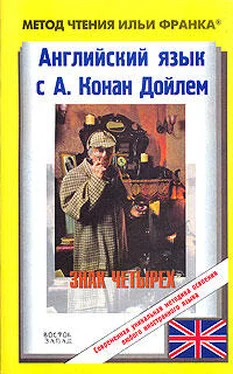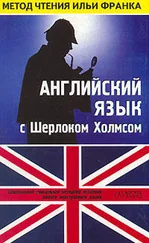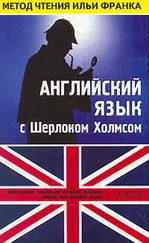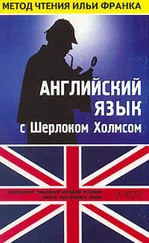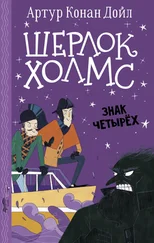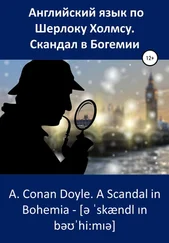soften ['sOf(@)n], ere [e@], bury ['berI], muscle [mVsl], favour ['feIv@]
"I could hear the measured tramp of their footsteps sounding through the lonely corridors. Suddenly it ceased, and I heard voices, and a scuffle, with the sound of blows. A moment later there came, to my horror, a rush of footsteps coming in my direction, with the loud breathing of a running man. I turned my lantern down the long, straight passage, and there was the fat man, running like the wind, with a smear of blood across his face, and close at his heels, bounding like a tiger, the great black-bearded Sikh, with a knife flashing in his hand. I have never seen a man run so fast as that little merchant. He was gaining on the Sikh, and I could see that if he once passed me and got to the open air he would save himself yet. My heart softened to him, but again the thought of his treasure turned me hard and bitter. I cast my firelock between his legs as he raced past, and he rolled twice over like a shot rabbit. Ere he could stagger to his feet the Sikh was upon him, and buried his knife twice in his side. The man never uttered moan nor moved muscle, but lay where he had fallen. I think myself that he may have broken his neck with the fall. You see, gentlemen, that I am keeping my promise. I am telling you every word of the business just exactly as it happened, whether it is in my favour or not."
He stopped, and held out his manacled hands for the whisky-and-water which Holmes had brewed for him (он остановился и протянул свои закованные в наручники руки к виски с содовой, приготовленные для него Холмсом; to manacle — надевать наручники; to brew — варить; смешивать; приготовлять) . For myself, I confess that I had now conceived the utmost horror of the man (что касается меня, то признаюсь, что меня он теперь приводил в ужас: «я теперь испытывал полный ужас от этого человека»; to conceive — постигать, понимать; испытать, ощутить; utmost — самый отдаленный; крайний; величайший) , not only for this cold-blooded business in which he had been concerned (не столько из-за этого хладнокровного убийства: «дела», в котором он был замешан; to concern — касаться; иметь отношение) , but even more for the somewhat flippant and careless way in which he narrated it (сколько из-за того, как легкомысленно и беззаботно он об этом рассказывал; flippant — легкомысленный, несерьезный; бездумный; careless — небрежный; легкомысленный, несерьезный; to narrate —повествовать, рассказывать) . Whatever punishment was in store for him (какое бы наказание его ни ждало; store — запас, резерв; to be in store — ожидать; предстоять; быть уготованным) , I felt that he might expect no sympathy from me (я чувствовал, что от меня сочувствия он вряд ли дождется; to expect — ждать, ожидать) . Sherlock Holmes and Jones sat with their hands upon their knees (Шерлок Холмс и Джонс сидели, положив руки на колени) , deeply interested in the story, but with the same disgust written upon their faces (увлеченные историей, но с тем же отвращением, написанным на лицах) . He may have observed it, for there was a touch of defiance in his voice and manner as he proceeded (вероятно, он это заметил, так как в его голосе и манере, когда он продолжил рассказ, звучала нотка вызова; touch — прикосновение, касание; примесь, налет, оттенок; defiance — вызов; to proceed — продолжать говорить) .
"It was all very bad, no doubt," said he (конечно, все это было ужасно, — сказал он; doubt — сомнение) . "I should like to know how many fellows in my shoes (хотелось бы мне знать, сколько парней в моем положении: «в моих туфлях») would have refused a share of this loot (отказались бы от доли в добыче) when they knew that they would have their throats cut for their pains (если бы знали, что им за мужество перережут горло; pain — боль; pains — старания, труды; усилия) . Besides, it was my life or his when once he was in the fort (кроме того, когда он оказался бы в крепости, выбор был бы между моей жизнью или его) . If he had got out, the whole business would come to light (если бы он убежал, все это дело получило бы огласку: «вышло на свет»; to get out — уходить, сбегать) , and I should have been court-martialled and shot as likely as not (и меня бы судили полевым судом и, скорее всего, расстреляли бы; to court-martial — судить военно-полевым судом; to shoot — стрелять) ; for people were not very lenient at a time like that (так как люди не очень-то снисходительны в такие времена; lenient — снисходительный; мягкий; терпимый) ."
"Go on with your story," said Holmes, shortly (продолжайте свой рассказ, — кратко сказал Холмс) .
interested ['Int(@)r@stId], court-martial [,kO:t'mA:S(@)l], lenient ['li:nI@nt]
He stopped, and held out his manacled hands for the whisky-and-water which Holmes had brewed for him. For myself, I confess that I had now conceived the utmost horror of the man, not only for this cold-blooded business in which he had been concerned, but even more for the somewhat flippant and careless way in which he narrated it. Whatever punishment was in store for him, I felt that he might expect no sympathy from me. Sherlock Holmes and Jones sat with their hands upon their knees, deeply interested in the story, but with the same disgust written upon their faces. He may have observed it, for there was a touch of defiance in his voice and manner as he proceeded.
"It was all very bad, no doubt," said he. "I should like to know how many fellows in my shoes would have refused a share of this loot when they knew that they would have their throats cut for their pains. Besides, it was my life or his when once he was in the fort. If he had got out, the whole business would come to light, and I should have been court-martialled and shot as likely as not; for people were not very lenient at a time like that."
"Go on with your story," said Holmes, shortly.
"Well, we carried him in, Abdullah, Akbar, and I (ну, мы занесли его, Абдулла, Акбар и я) . A fine weight he was, too, for all that he was so short (и весил он немало: «хорошенького веса он был», несмотря на то, что был такой коротышка) . Mahomet Singh was left to guard the door (Мохаммеда Сингха оставили охранять ворота) . We took him to a place which the Sikhs had already prepared (мы отнесли его к уже подготовленному сикхами месту) . It was some distance off, where a winding passage leads to a great empty hall (это было в удалении, где извилистый проход вел к огромному пустому залу) , the brick walls of which were all crumbling to pieces (с осыпающимися кирпичными стенами: «кирпичные стены которого все крошились на куски»; to crumble — раскрошить; сыпаться, осыпаться) . The earth floor had sunk in at one place, making a natural grave (земляной пол в одном месте просел, образовав естественную могилу; to sink — тонуть; to sink in — оседать) , so we left Achmet the merchant there, having first covered him over with loose bricks (и мы оставили там Ахмета-купца, закидав его выпавшими кирпичами; to cover — накрывать, закрывать, покрывать; loose — свободный; плохо прикрепленный; шатающийся) . This done, we all went back to the treasure (сделав это, мы отправились к сокровищам) .
Читать дальше
